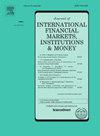在征收碳关税的情况下,如何发展全球能源密集型部门?
IF 5.4
2区 经济学
Q1 BUSINESS, FINANCE
Journal of International Financial Markets Institutions & Money
Pub Date : 2024-01-04
DOI:10.1016/j.intfin.2023.101930
引用次数: 0
摘要
欧盟等发达经济体主张对缺乏同等减排措施的国家的出口产品征收碳关税,能源密集型行业最容易受到影响。本研究根据发达经济体征收碳关税的潜在标准制定了五种具体的政策方案。利用 GTAP-E 模型,我们定量分析了对主要发展中经济体和发达经济体能源密集型行业的影响。结果凸显了受影响经济体与征收经济体相比所处的不利地位。最后,本文深入探讨了相关国家的有效战略,并概述了能源密集型行业的转型途径。本文章由计算机程序翻译,如有差异,请以英文原文为准。
How to develop global energy-intensive sectors in the presence of carbon tariffs?
Developed economies like the EU advocate imposing carbon tariffs on exports from countries lacking equivalent emission reduction measures, with energy-intensive sectors being the most susceptible. This study establishes five specific policy scenarios aligned with the potential criteria for carbon tariffs by developed economies. Utilizing the GTAP-E model, we quantitatively analyze the impact on energy-intensive sectors in major developing and developed economies. The results highlight the disadvantaged position of affected economies compared to the imposing ones. Lastly, the paper delves into effective strategies for relevant countries and outlines the transition pathways for energy-intensive sectors.
求助全文
通过发布文献求助,成功后即可免费获取论文全文。
去求助
来源期刊
CiteScore
6.60
自引率
10.00%
发文量
142
期刊介绍:
International trade, financing and investments, and the related cash and credit transactions, have grown at an extremely rapid pace in recent years. The international monetary system has continued to evolve to accommodate the need for foreign-currency denominated transactions and in the process has provided opportunities for its ongoing observation and study. The purpose of the Journal of International Financial Markets, Institutions & Money is to publish rigorous, original articles dealing with the international aspects of financial markets, institutions and money. Theoretical/conceptual and empirical papers providing meaningful insights into the subject areas will be considered. The following topic areas, although not exhaustive, are representative of the coverage in this Journal. • International financial markets • International securities markets • Foreign exchange markets • Eurocurrency markets • International syndications • Term structures of Eurocurrency rates • Determination of exchange rates • Information, speculation and parity • Forward rates and swaps • International payment mechanisms • International commercial banking; • International investment banking • Central bank intervention • International monetary systems • Balance of payments.

 求助内容:
求助内容: 应助结果提醒方式:
应助结果提醒方式:


